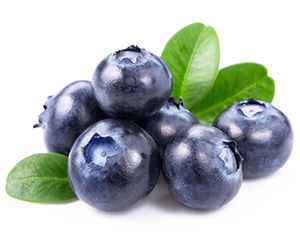Categories
Categories
Postpartum Depression and Postpartum Blues Lifted by Simple Nutritional Supplement
Posted by on
Postpartum blues is a mild psychological depression that occurs right after delivery and peaks 5 days after delivery. During one day of third-trimester pregnancy, the woman produces 400 mg/day of Natural Progesterone. This progesterone produced during the third trimester of pregnancy is mainly being produced by the placenta. After the placenta is delivered, progesterone levels drop to zero. Progesterone is known as the “happy hormone”. Progesterone in the absence of xenoestrogens lifts the mood. However, when progesterone levels drop suddenly, a psychological depression is usually the result.
Postpartum blues is considered to be the predictor or prodrome of a postpartum depression. Postpartum depression has an incidence rate 13% of all pregnancies.
John Lee, MD usually gave topical transdermal natural progesterone to replace the missing progesterone from the pregnancy. He claimed in his book “What Your Doctor May Not Tell You About Menopause” that natural progesterone was able to combat postpartum depression. This is usually what I recommend for my patients. You can find it here.

A research paper published in the Proceedings of the National Academy of Sciences of the United States demonstrated that when a simple dietary supplement was given postpartum women they experienced much less depression after the birth of their baby. The study took 41 women. 21 women received a daily dietary supplement from days 3-5 after delivery of 2 g of tryptophan, 10 g of tyrosine, and blueberry juice with blueberry extract. The other 20 women did not receive the dietary supplement. Postpartum blues severity was measured using the “Sad Mood Induction Procedure”. There was a robust indicator of depressed mood in the control group. However, the supplement group did not have the indicators of depression. Control’s scores were almost a thousand times higher than the supplement group. There was a large 3 fold improvement in mood for the supplement group. Tryptophan and tyrosine levels in the breast milk were not affected by the dietary supplement. So, this supplement seems to be safe for baby.
Postpartum blues are thought to be mediated by an elevation of Monoamine oxidase A (MAO-A). Mao-A helps the brain regulate neurotransmitter activity. L-tryptophan and L-tyrosine amino acids are believed to help initiate sleep and balance the MAO-A activity. They also reduce oxidative stress. Blueberry juice and blueberry extract were used to make the amino acids more palatable. Blueberry extract has also been shown to help chemicals pass through the blood brain barrier.
Notes
Yekta Dowlatia, Arun V. Ravindrana, Zindel V. Segald, Donna E. Stewartb, Meir Steinerb, and Jeffrey H. Meyera, “Selective dietary supplementation in early postpartum is associated with high resilience against depressed mood,” Proceedings of the National Academy of Sciences of the United States, Feb. 3, 2017.
This was reported in arstechnica.com.
 Loading... Please wait...
Loading... Please wait...